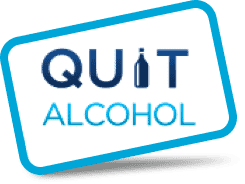Driving while intoxicated (DWI) is different than driving under the influence (DUI) in a couple of ways. How they are different depends on the state the crime occurs in. Some states use the term ‘DWI’ for alcohol-impaired driving and use the term ‘DUI’ for drug-impaired driving. Other states simply use DUI as a lesser crime than DWI, regardless of substance. We will discuss DUI vs DWI, the differences, the similarities, the scope of the problem (think epidemic), and the penalties for each.
Driving intoxicated, regardless of the substance used, is an absolutely terrible idea. The single most dangerous thing someone can do on the road is drive impaired. If you disagree, face the facts. Someone dies in an alcohol-related car crash every 53 minutes of every day, every year. That’s over 10,000 deaths a year that can be prevented by driving sober. Alcohol is not the only problem. Drugged driving causes 4,000 driver deaths per year. That figure excludes those killed by drugged drivers, the exact amount of which is hard to measure due to lack of drug testing.
Driving While Intoxicated
Let’s start with the more familiar DWI. This usually stands for “driving while intoxicated,” but can also stand for “driving while impaired.” The use of the term ‘DWI’ is almost universally reserved for alcohol-impaired drivers. All 50 states consider a blood alcohol content (BAC) of 0.08% or higher to mean legal impairment. This means that if .08 percent or more of your current bloodstream is alcohol, you are legally drunk. For commercial drivers, such as drivers of 18-wheelers or school buses, a BAC of 0.04% or higher is legal impairment.
Effects of Alcohol on the Body
The effects of alcohol on the body are the reason alcohol is the most deadly substance to use while driving. Alcohol is a depressant, and it slows down the functions of the central nervous system. Brain function relies on the central nervous system, and when someone is drunk, his or her brain function is delayed. Therefore, responses are delayed. This could result in not stopping in time for a traffic signal, switching lanes before looking, veering off the road, and countless other driving dangers.
Alcohol impairs several human skill sets, including information processing, critical thinking, hand-eye coordination, and psychomotor skills (critical movement). These are skill sets absolutely necessary for operating a motor vehicle. If you drive, you know this. The road can be a dangerous place even sober.
DWI Statistics
Each year, over 120 million adults report having driven drunk. Only 1.1 million are arrested. The law cannot follow you into your vehicle. The choice is yours. Just remember next time you think you can pull off driving with an alcohol buzz that 57% of fatally injured drivers test positive for alcohol. Keep these facts in mind as well:
Nearly one third of fatal car accidents involve alcohol. Vehicle accidents are the leading cause of death among teenagers. Of teenage car crash deaths, 25% involve alcohol. Two out of three people will be involved in an alcohol-related car accident in their life. Some lives are cut too short by alcohol; in 2014 there were 209 children under 14 killed by alcohol-related car crashes.
The bottom line is that alcohol and driving do not mix. They are like deadly oil and water. Even one drink can impair your ability to drive. Don’t become a statistic, and don’t create any statistics.
DWI Penalties
The law does not take driving while intoxicated lightly. This is especially true for repeat offenders. While DWI laws vary by state, there are some penalties that are universal for all 50 states.
For example, a first-offense DWI is considered a misdemeanor in all states. This is punishable by up to six months jail time. Most states require a mandatory minimum sentence for DWI crimes. Also, if the intoxicated driver’s BAC is extremely high, or if extenuating circumstances such as open bottles or property damage occur, the jail time can increase. If a DWI is considered a felony, either due to injury inflicted by the driver’s vehicle or due to multiple previous counts of DWI, jail time can extend to many years.
Fines for DWI are also hefty. They can range from $500 to $2000 per offense, increasing with the more offenses stacked up. Also, fines can vary state by state; this is not a perfectly accurate fine range.
On top of jail time and fines, DWI offenders face issues with their driver licenses as well. Again, this varies state to state, but generally, first-time offenders face a 90-day suspension of license. Second-time offenders face a one-year suspension, and third-time offenders face a three-year suspension. This can either be court-mandated or ordered by the state’s motor vehicle department, effectively doubling the likelihood of a DWI offender having their license revoked.
Some states apprehend the vehicle itself from a DWI offender. Some states even revoke the vehicle’s registration. The placement of ignition interlock devices is also common, making it so the driver must pass a breathalyzer test every time he or she starts his or her vehicle. Other forms of punishment practiced include ordered alcohol education, treatment for alcoholism, community service, or even victim restitution.
We’ve Helped Thousands of Individuals Overcome Drug and Alcohol Addiction
Start exploring addiction rehabs
- Free & confidential helpline
- Connect with an expert rehab advisor
- Understand and review treatment options
Driving Under the Influence
The term ‘DUI’, which stands for driving under the influence, has two different meanings depending on which state the crime occurs within. DUI can either mean a lesser charge of DWI, involving strictly alcohol, or DUI can mean driving under the influence of intoxicating drugs other than alcohol. The latter meaning is the focus of this article. Regarding alcohol-based DUI, it must be the driver’s first offense and his or her BAC must not be exceedingly over the legal 0.08% limit.
Drug-based DUI, (which from now on will simply be referred to as DUI), is taken just as seriously as DWI is in this country. Receiving a DUI means the arresting officer believed you were too intoxicated to drive. While it may not be as quick as a breathalyzer test, in all 50 states officers are now allowed to request a Drug Recognition Expert. These experts use several steps to determine whether or not a driver is impaired on drugs. Whether it be a driver’s use of marijuana, prescription pills (whether yours or not), heroin, or alcohol, trust that the Drug Recognition Experts will determine which it is.
Also, if a field sobriety test is failed but the driver’s BAC is below 0.08%, a DUI can still be issued. Only in the case of a medical cause can failure of a field sobriety test be dismissed. The effects of drugs on the body and mind vary from substance to substance, but in all scenarios drug use affects decision-making. Depressants, muscle relaxers, painkillers and other ‘downers’ can cause delayed response, while stimulants and other ‘uppers’ can cause erratic driving behavior.
DUI Statistics
DUI statistics are equally as alarming as DWI statistics. Approximately 10 million Americans drive under the influence of drugs other than alcohol per year. Nearly one in five fatally injured drivers test positive for an illicit drug other than alcohol. By far the group most susceptible to driving on drugs is those aged 18 – 25.
As mentioned, prescription pills that are legally owned by the driver can cause a DUI. In fact, approximately 16% of car crashes involve drugs other than alcohol that are not necessarily illegal. Please take caution when using legal drugs and driving. A doctor’s note will not get you out of jail. Even medical marijuana can cause a DUI.
Marijuana is the second-most used drug by drivers, behind alcohol. Some people do not believe marijuana impairs the ability to drive, possibly due to the slow legalization process occurring in the American medical field. Some people are wrong. THC, the active ingredient in marijuana, impairs sections of the brain responsible for body movements, balance, coordination, memory and judgment. Marijuana use increases the chances of causing a car accident by 125%. Even medical marijuana can cause a DUI.
Drugged driving is equally as dangerous (if not more) than drunk driving. Both are forms of impaired driving. Both kill people and both can land you in prison. Again, don’t become a statistic, and don’t cause any. Drive sober.
DUI Penalties
(Note: In states where DUI is considered a lesser form of DWI, the penalties are the same as for first-time DWI offenders. See above for such penal guidelines. In this section, the term ‘DUI’ refers to driving under the influence of drugs.)

In all states, DUI penalties are more complex than DWI penalties. This is because of the wide range of substances that can cause a driver to receive a DUI. However, if a field sobriety test is failed and/or a Drug Recognition Expert determines a driver to be under the influence of drugs, expect the same penalties as for a DWI. Otherwise, the presence of drugs is discovered through urine testing or blood sampling. This is true nationwide.
When it comes to penalties state by state, fifteen states enforce “per se” laws regarding DUI. This means it is illegal to operate a motor vehicle with any detectable trace of certain drugs in the system. Five states even make it illegal for certain known drug addicts to operate a motor vehicle altogether.
For a breakdown of how each individual state enforces DUI laws, click here.
Each Drug has its Driving Dangers
The following is a list of commonly abused drugs and their impairing effects on driving:
- Marijuana: Relaxation; disorientation; altered time and space perception; drowsiness; paranoia; image distortion; increased heart rate
- Cocaine: Euphoria; excitation; dizziness; disoriented behavior; irritability; paranoia; aggressiveness; increased heart rate
- Methamphetamine: Hallucinations; delusions; insomnia; poor impulse control; increased heart rate; increased blood pressure
- Morphine or Heroin: Drowsiness; relaxation; sedation; disconnectedness; mental clouding; analgesia; depressed heart rate; nausea and vomiting; diminished reflexes
- LSD: Hallucinations; altered mental state; delusions; impaired depth, time & space perception; hypertension; tremors
The bottom line is never to drive intoxicated. Stay sober, drive sober, and do not become or cause a statistic.

